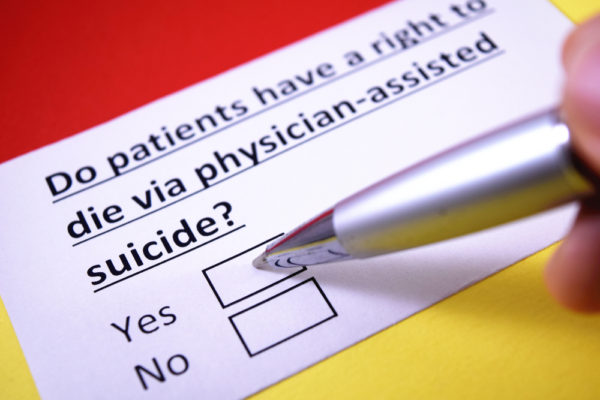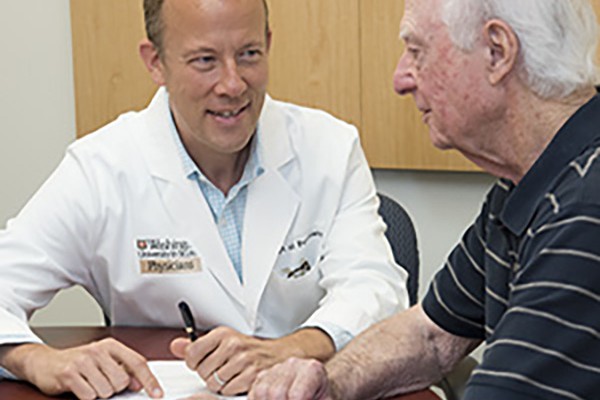Does improving cardiovascular health reduce risk of dementia?
Researchers at the School of Medicine are recruiting volunteers for a national study that is exploring whether strategies to improve cardiovascular health also reduce the risk of dementia in those at risk for Alzheimer’s disease.
WashU Expert: Physician assisted death for Alzheimer’s, dementia?
As Alzheimer’s disease and other forms of dementia continue to become more prevalent, it may not be long before there is a push for legalizing physician-assisted death in dementia cases in the United States. American officials must thoroughly consider the moral and social consequences of such an action, says an expert on medical ethics at Washington University in St. Louis.
Two-drug combo helps older adults with hard-to-treat depression
More than half of older adults with clinical depression don’t get better when treated with an antidepressant. But results from a multicenter clinical trial that included Washington University School of Medicine in St. Louis indicates that adding a second drug — an antipsychotic medication — to the treatment regimen helps many of those patients.
Symposium: Finding humanity in advanced dementia, April 27
Discovering ways to honor the dignity
of individuals coping with Alzheimer’s disease and other dementias is the goal of an interdisciplinary symposium on “Finding Humanity in
Advanced Dementia” to be held in Wilson Hall on the Danforth Campus of Washington University in St Louis on Saturday, April 27.
Sleep loss precedes Alzheimer’s symptoms
Sleep is disrupted in people who likely have early
Alzheimer’s disease but do not yet have the memory loss or other
cognitive problems characteristic of full-blown disease, researchers at
the School of Medicine report. Shown is first author of the study, Yo-El Ju, MD, an assistant professor of neurology.
Clue to Alzheimer’s cause found in brain samples
Researchers at Washington University School of Medicine in St. Louis have found a key difference in the brains of people with Alzheimer’s disease and those who are cognitively normal but still have the brain plaques that characterize this type of dementia.
Study in mice suggests sleep problems may be early sign of Alzheimer’s
Sleep disruptions may be among the earliest indicators
of the start of Alzheimer’s disease, scientists at Washington University
School of Medicine in St. Louis report this week in Science
Translational Medicine. David M. Holtzman, MD, the Andrew B. and Gretchen P. Jones Professor and
head of the Department of Neurology, is the study’s author.
Carpenter strives to change ER experience
Emergency physician Chris Carpenter, MD, is conducting a study of patients in the emergency room
who are older than 65 and at increased risk of having dementia. He
wants to determine if referring suspected Alzheimer’s patients to an
outreach agency will reduce frequent returns to the emergency department
and help them remain independent longer.
New Alzheimer’s marker strongly predicts mental decline
A new marker of Alzheimer’s disease can predict how rapidly a patient’s memory and other mental abilities will decline after the disorder is diagnosed, Rawan Tarawneh, MD, found while a postdoctoral research associate at Washington University School of Medicine in St. Louis. The new data suggest that VILIP-1 potentially may be a better predictor of Alzheimer’s progression than other markers.
Researchers identify gene for rare dementia
Studying family members suspected of having Alzheimer’s disease, researchers at Washington University School of Medicine in St. Louis have identified a gene that causes a rare disorder highlighted by memory loss and motor impairments. The condition is known as Kufs disease, but scientists say the discovery paves the way to development of a genetic test for Kufs and to therapies to treat dementia, which is a hallmark of Kufs and of other neurodegenerative conditions, such as Alzheimer’s disease.
View More Stories



